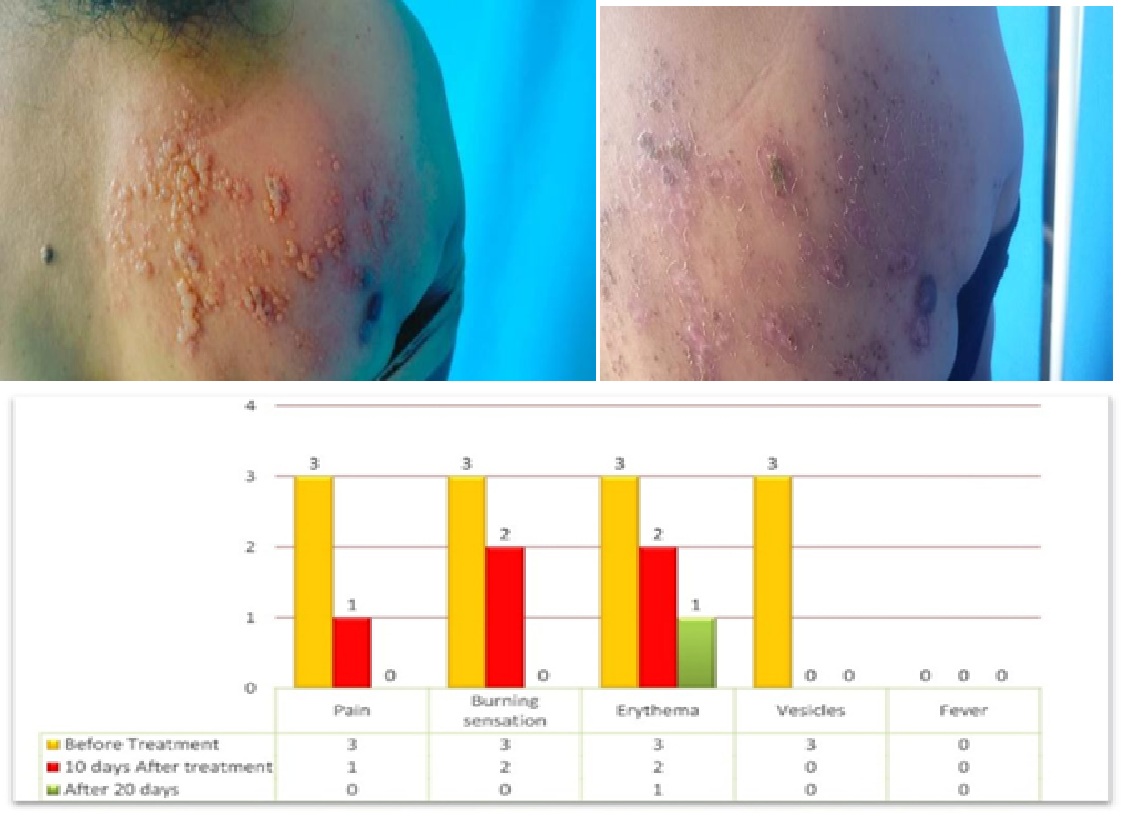Ayurvedic Management of Herpes Zoster
DOI:
https://doi.org/10.47070/ijapr.v13i3.3606Keywords:
Chickenpox, Herpes zoster, Postherpetic neuralgia, Varicella zoster virus, VisarpaAbstract
Herpes zoster, commonly known as shingles, is a viral disease caused by the reactivation of the varicella zoster virus. In India, from January 2015 to May 2021, there were 1,269 chickenpox outbreaks, resulting in 27,257 cases. Diagnosis of herpes zoster is based on severe pain, unilateral distribution, and the presence of grouped vesicles on erythematous, edematous skin, which rapidly evolve into pustules and then crust. Complications such as postherpetic neuralgia (10.2-54.7%) and secondary bacterial infections (3.5-21.0%), pose significant challenges in treatment. Contemporary medicine approaches cases with antiviral medications, antihistamines, NSAIDs, topical soothing powders, and symptomatic relief through analgesics. The herpes zoster is understood as vitiation of Tridosha, Twak, Rakta, Mamsa, Lasika and Sweda as per Ayurveda. Due to similar Dosha-dooshya vitiation Loota visha chikitsa and Visarpa chikitsa are being adopted. Dooshivisha chikitsa and Dosha-based management are also being incorporated by some Vaidyas based on individual condition. This case study is focusing on a 53-year-old female patient from Kerala, presented in the outpatient department of Agadatantra, illustrates the practical application of Dosha-based Ayurvedic management. She presented with reddish skin lesions over the right upper back region, extending to the axilla associated with severe pain and burning sensation. This Ayurvedic treatment approach demonstrated significant effect, promotes healing without complications and offers a cost-effective alternative to conventional management. This case study suggests the potential of Ayurvedic management protocol in not only reducing symptoms but also fundamentally addressing the underlying imbalances that contribute to herpes zoster.
Downloads




